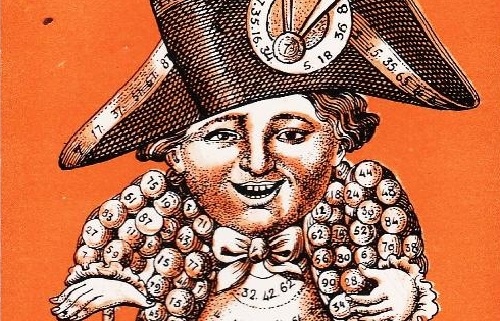Eduardo González
The National Lottery, whose most famous event is the Christmas draw held today in Madrid, was created in 1763 on the initiative of the Government of Charles III as a hidden indirect tax to increase income for the royal coffers and finance the Monarchy’s war commitments.
In 1759, Carlos VII of Naples became Carlos III of Spain, and by virtue of this, one of his main men of confidence, the Marquis of Esquilache, went on to perform in his new destination exactly the same position he previously held in Italy, the secretary (minister) of Finance.
When the relay took place, Spain was fully involved in the Seven Years’ War in favor of its dynastic ally France and against British interests in America. The country was in the midst of financial crisis and Esquilache, both in the Ministry of Finance and in the War Department (for which he was appointed secretary in 1763), was obliged to reorganize the Armed Forces and increase the income for the real coffers.
To get it, the Marquis not only ordered an increase in fiscal pressure and the liberalization of the grain trade (two determining factors of the Esquilache Mutiny, apart from the famous capes and hats), but he did his best to find new formulas for the collection of income.
One of those formulas was, precisely, the creation of the National Lottery, an indirect covert tax that was established by Esquilache by Royal Decree of September 30, 1763 and whose first raffle was held in Madrid on December 10 of that same year in the Board of the Treasury.
That Beneficiata or Primitiva lottery was not very popular at the beginning, so it was the subject of several subsequent reforms to give it a more beneficial aspect and to increase the percentages of the prizes, which made it less profitable for the State.
At the end of the 18th century was created the Fanatic of the Lottery or The Lucky Dwarf, a kind of advertising mascot of the Lottery that, according to some scholars, gave rise to the expression El Gordoto name the first prize. In 1771, the children of San Ildefonso – Madrid’s oldest institution dedicated to children – sang the numbers of the Lottery for the first time.
On November 23, 1811, the Cortes (Parliament) of Cádiz approved the creation of a new Lottery to finance the war against Napoleon. The initiative came from Ciriaco González Carvajal, minister of the Council and the Chamber of the Indies, and was inspired by a similar and quite successful lottery that was played since 1771 in New Spain, now Mexico.
The new formula, much simpler and more profitable than the previous one (the percentage of the prizes was much lower), was named the Modern Lottery to differentiate it from the Primitive, which disappeared in 1862, until it was recovered in 1985 with the same formula previous.
The Modern Lottery held its first draw on March 4, 1812 and the first Christmas raffle (although still without that name) was held on December 18 of the same year. The first Christmas raffle itself took place on December 23, 1892. The first Gordo was number 03604, awarded with 8,000 reales, 2,000 pesetas of the time.







